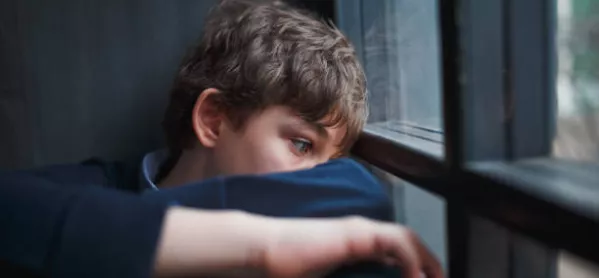GCSEs 2021: Lockdown ‘hits exam year students hardest’

GCSE students have experienced the lowest levels of learning during lockdown, while their anxiety levels have risen more than in any of the other key stage groups, according to a new report.
The report, from ImpactEd, also says Year 10 and 11 students have suffered a drop in motivation more than other year groups - and suggests “the pressures of exam uncertainty” may be a factors affecting students.
Based on research on more than 62,000 pupils who were tracked over seven months to Christmas last year, the report presents a picture of the impact of lockdown and school closures on pupils - and schools and trusts are now using the findings to target support where they see it is most needed.
Exclusive: Gavin Williamson ‘must act now’ on 2022 GCSEs
Read: Covid-19 ‘widens achievement gap to a gulf’
Coronavirus: DfE lockdown help for poorer pupils ‘has little impact’
Owen Carter, managing director of ImpactEd, said: “We undertook this study not to find out simply who had been affected and by how much - but to identify pupils with specific issues and help schools understand the issues these different groups of pupils were experiencing.
Coronavirus: The impact of lockdown on GCSE students
“Schools have been able to access the results on an individual level through our digital platform, so they have known who they needed to support and how,” he added.
Specific findings about GCSE students include:
- They reported particular challenges with home learning, with nearly three in every 20 saying they regularly did not understand work set (the highest ratio of any key stage).
- They were the most likely age group to report being unable to get support with their work, with one in four saying they couldn’t get help from their family if they had questions about their work, and nearly one in five saying they couldn’t get help from school.
- They were the least likely to report having a suitable learning routine, with nearly 40 per cent saying they didn’t have a routine that helped them learn (compared with 32 per cent of key stage 3 studnets and 31 per cent of key stage 2 pupils).
- Students in Years 10, 11 and 13 had the lowest wellbeing scores.
Leora Cruddas, chief executive of the Confederation of School Trusts, said: “This report makes a very important contribution to understanding the social and educational impacts of lockdown. The rich findings in the report will enable more schools and trusts to target resources towards those shown to need different types and levels of help.”
Among the trusts using the research is Outwood Grange Academies Trust, which has 40 schools across the North of England and from where some 15,000 students took part in the research.
Lauren Knowles, vice-principal of Outwood Grange Academy, said: “Where we noticed groups of pupils which needed more support, we quickly introduced targeted interventions, such as tutor time activities to foster a higher order mindset, or one-to-one counselling drop-ins for those who scored low in wellbeing or anxiety. We also brought in interventions aimed at specific demographics and year groups, such as Year 11 boys who scored unusually low after time off school, to help rebuild their confidence.”
The research, billed as the “biggest pupil-facing research study undertaken” also identified disadvantaged pupils as suffering disproportionately in lockdown, including that:
- Only 45 per cent agreed that they understood their school work while learning remotely, compared with 57 per cent of non-disadvantaged pupils.
- Only 67 per cent said they were able to use a device when they needed to complete the online work they were set, compared with 78 per cent of other pupils.
Researchers also found girls were, on average, 10 per cent more anxious about returning to school than boys.
ImpactEd is a non-profit organisation that supports schools and education organisations to evaluate their impact and prioritise what is working best to improve outcomes for young people.
A Government spokesperson said: “We will invest a further £300 million in tutoring programmes, building on the existing £1bn Covid Catch Up Fund, but the prime minister has been clear that extended schools closures have had a huge impact on pupils’ education, which will take more than a year to make up.
“We will work with parents, teachers and schools to develop a long-term plan to make sure pupils have the chance to make up their lost education over the course of this parliament - and we have just appointed Sir Kevan Collins to the role of Education Recovery Commissioner, to specifically oversee this issue.
“We are providing 1.3 million laptops and tablets to make sure all children can continue learning and schools are expected to provide remote education equivalent in length to the core teaching pupils would receive in school. Our £8m expert mental health training programme is also helping schools support staff and pupils’ wellbeing.”
You need a Tes subscription to read this article
Subscribe now to read this article and get other subscriber-only content:
- Unlimited access to all Tes magazine content
- Exclusive subscriber-only stories
- Award-winning email newsletters
Already a subscriber? Log in
You need a subscription to read this article
Subscribe now to read this article and get other subscriber-only content, including:
- Unlimited access to all Tes magazine content
- Exclusive subscriber-only stories
- Award-winning email newsletters